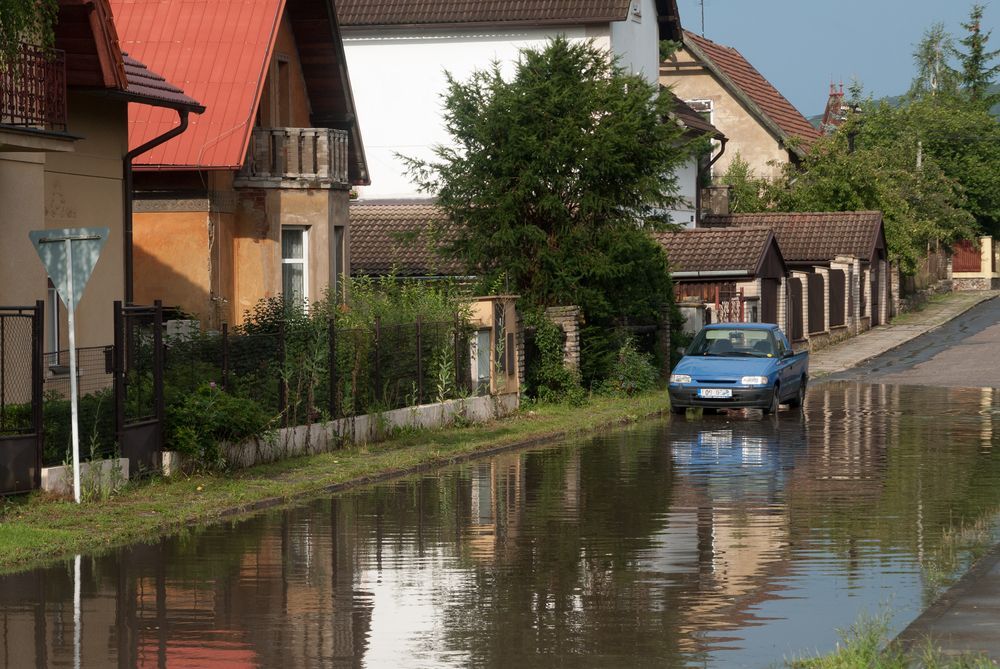
What are the Effects of Poor Drainage?
Tuesday 17th October, 2023Drainage systems help to make sure our towns, cities and countryside remain functional and habitable under the stress of rainfall. Yet, the importance of an efficient drainage system is often overlooked until something goes wrong. Blocked drains can lead to floods, damaging infrastructure and ecosystems, and even flooding homes. From your kitchen drain to the sewers, it is vital that we treat our drainage systems with the care they require and make sure to change our bad habits that can lead to these issues.
At Unblocktober, we want to help people understand how making small changes in our day-to-day lives can help to maintain our drains, benefitting our infrastructure and environment. In the following blog post, we explore the importance of good drainage and what can happen when it fails.
The UK's Drainage Systems
Dating back to Roman times, drainage systems have been an integral part of British civil engineering. While early systems primarily channelled water away from settlements, contemporary drainage systems have evolved to be much more sophisticated, addressing both water collection and distribution.

However, despite technological advancements, poor drainage remains a pressing issue in some areas. Many of our sewers, especially in large cities like London, have barely been updated since Victorian times. This means they are not prepared for many of the modern issues we now face - such as fatbergs.
The Importance of Efficient Drainage
Proper drainage is crucial for both urban and rural settings in the UK, and its significance extends far beyond merely channelling water away from our properties.
Infrastructure Protection
In urban landscapes, an efficient drainage system plays a vital role in maintaining the integrity of public and private infrastructure. Water-logging can weaken the structural integrity of buildings, roads and bridges. Over time, this can result in costly repairs and, in worst-case scenarios, catastrophic failure of these structures.


Traffic and Commuting
Poor drainage can also lead to road closures and disrupt public transport, causing delays and increased commuting time for individuals. These disruptions not only cause frustration but also have economic consequences, as they can result in loss of productivity and increased transportation costs.
Public Health
Stagnant water, a consequence of inadequate drainage, can become a breeding ground for various pathogens and disease-carrying pests. Good drainage prevents the stagnation of water, helping to mitigate such health risks.


Environmental Balance
In rural areas, efficient drainage is essential for maintaining an ecological balance. Properly channelled water helps nourish plant life and maintains natural habitats. On the other hand, water that is poorly drained can lead to soil erosion and may disrupt local ecosystems, threatening both plant and animal life.
Agriculture
Agriculture is a key sector in the UK, and poor drainage can have a disastrous impact on crop yields. Water-logged fields are less fertile and can lead to the growth of mould and fungi, which can destroy crops. Furthermore, over-saturation of soil can lead to nutrient loss, making the land less productive for future agricultural use.

Signs of Poor Drainage
Recognising poor drainage is the first step towards mitigation. Here are some telltale signs:
- Water pooling: if excess water accumulates in certain areas and takes a long time to evaporate or drain, you're witnessing a clear sign of poor drainage.
- Cracks in foundations and walls: poor drainage can lead to water accumulating around the foundations of buildings, causing cracks over time.
- Foul smells: standing water, especially in warm weather, can lead to unpleasant odours.
- Overflooding during heavy rains: if your area consistently floods during rainstorms, your drainage system is likely inadequate.
Solutions and Preventative Measures
Addressing poor drainage is not solely the remit of local authorities or urban planners; individuals can also take significant steps to prevent drainage issues. Here are some comprehensive strategies to improve drainage systems and prevent the multifaceted problems caused by poor drainage:
Best Practices in Construction
Whether renovating an older property or building a new one, it's vital that construction projects plan to incorporate efficient drainage systems. Project managers should consult drainage professionals to ensure that the system is up to local codes and regulations. Features such as French drains, sump pumps and strategically placed downspouts can help in guiding water away from your property.


Community Involvement
Local residents can play a vital role by maintaining the drains and drainage pipes in and around their properties. Reporting any issues like blockages or visible damage to local councils can help to speed up necessary repairs. Additionally, community clean-up drives can keep local drainage channels free from debris.
Government Initiatives
Local councils and governments should invest in upgrading existing drainage infrastructure. Scheduled inspections and timely maintenance can help in identifying and rectifying drain blockages before they escalate into more severe problems. Councils should monitor outdoor drains, facilitate reports from people about blockages, and take adequate measures to remedy the problems.


Proper Waste Disposal Habits at Home
One of the simplest yet most effective measures individuals can take is proper waste disposal. Avoid disposing of items like cooking oils, grease, food waste and non-biodegradable objects down the kitchen sink, as these can lead to blockages not just in your home, but also in public drainage systems.
The only thing you should be putting down the toilet drain is the three P's - (toilet) paper, pee and poo. You should also make sure to clear any lodged hair from the shower drain regularly. If you are struggling with a blocked drain, seek advice from a drainage expert on how to clear it, and make sure to do so as soon as you can.
Sign Up to Help
By pledging with Unblocktober, you can solidify your commitment to taking steps to make sure you keep up with waste disposal habits to contribute to the health of the UK's drainage systems. We aim to spread awareness of the importance of this often-overlooked area of our environment. Sign up here today:
